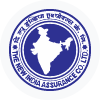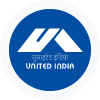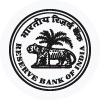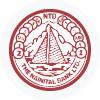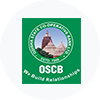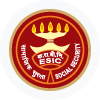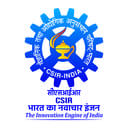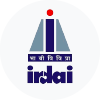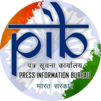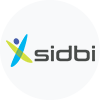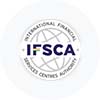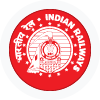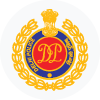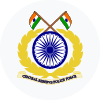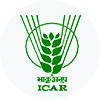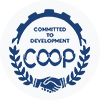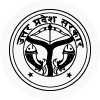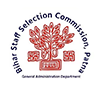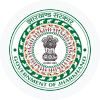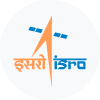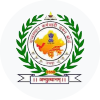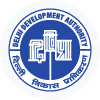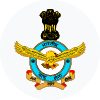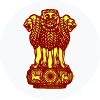SSC JE Civil Engineering Exam Overview
The Staff Selection Commission (SSC) will be releasing the official notification for Junior Engineer (Civil) Examination 2023. The SSC JE 2023 recruitment notification was released on 26.July.2023 and as per the official notification, the SSC JE 2023 Paper I examination will be held in the month of October 2023. A total of vacancies 1324 had been declared for the year 2023. The Online Application process started on 26. July 2023 and the last date to submit the online registration is 16.August.2023. As per the SSC JE 2023 Official notification, the Major changes include negative marking from 0.25 to 0.33 of Paper I and Paper II will be Computer-Based Objective Type.
The notification will contain all the important details about the eligibility criteria, exam pattern, syllabus, selection process, and application procedure for the SSC JE Civil exam. Candidates who are interested in applying for the SSC JE Civil exam can download the notification PDF from the official website of SSC. The notification PDF will also provide the tentative schedule of the exam and the instructions for filling up the online application form. The SSC JE Civil exam is a national-level competitive exam that aims to recruit qualified candidates for the post of Junior Engineer (Civil) in various government departments and organizations.
The exam consists of two stages: Paper-I (Computer Based Test) and Paper II (computer-based Objective type test). The candidates who qualify in both papers will be called for document verification and final selection. The SSC JE Civil exam is a golden opportunity for candidates who have a diploma or degree in civil engineering and want to work in the government sector. The SSC JE Civil exam offers a lucrative salary, job security, and career growth prospects for the selected candidates. Therefore, candidates are advised to read the notification PDF carefully and apply for the SSC JE Civil exam before the last date of application, which is August 16, 2023. Have a look at all the important elements of this notification.
SSC JE Civil Engineering Overview
| Particulars | Details |
| Conducting Body | Staff Selection Commission (SSC) |
| Exam name | SSC Junior Engineer (SSC JE) |
| Official Website | ssc.nic.in |
| SSC JE 2023 Vacancy | 1324 |
| Department for which vacancies are announced | Civil, Mechanical, Electrical, and Quantity Surveying & Contracts |
| Frequency of Exam | Once a year |
| Level of the exam | National Level |
| Application mode | Online |
| Exam mode | Online and Offline |
| Selection Process | Paper 1 & Paper 2:Computer-Based Test Document Verification |
| Medium of paper | English and Hindi |
SSC JE Civil Engineering 2023 Notification
As per SSC Calender, the official notification for the SSC JE 2023 exam is announced on 26th July 2023. As per the SSC JE 2023 notification, the exam will be held in October 2023. This year the total number of vacancies for the SSC JE 2023 Exam is 1324. As per the official notification, online registration starts from 26.July.2023 and the online registration will be closed on 16.August.2023.
SSC Junior Engineering Exam is conducted by the staff selection commission of India every year to recruit Civil Engineer, Mechanical Engineers, and Electrical Engineer for various departments like MES, BRO, CPWD, NTRO, and many more.
SSC JE Exam has two Tiers, Tier I is the computer-based objective type test whereas Tier II is also the Computer-Based Test (Objective type) from the year 2023. The candidates who qualify in both papers of the SSC JE Exam will be called for document verification and final selection.
SSC JE Civil Engineering 2023 Important Dates
SSC JE, or Staff Selection Commission Junior Engineer, is a highly competitive exam for engineering graduates who wish to secure a job in the government sector. It is essential for candidates to stay updated with the SSC JE Important Dates to prepare and apply accordingly. The exam is usually conducted once a year, and the notification for the same will be released by SSC on its official website. The important dates for the exam include the release of the notification, application form submission deadline, admit card release, exam date, result declaration, and more. It is crucial to keep track of these dates to ensure that you don't miss out on any crucial deadlines.
| Dates for submission of online applications | July 26, 2023, |
| Last date and time for receipt of online applications | August 16, 2023 |
| Last date and time for the generation of offline Challan | Will be Updated |
| Last date and time for making online fee payment | Will be Updated |
| Last date for payment through Challan (during working hours of Bank) | Will be Updated |
| Date of ‘Window for Application Form Correction' and online payment of Correction Charges. | Will be Updated |
| Schedule of Computer-Based Examination | October 2023 |
| Schedule of Paper-II | To be notified later |
SSC JE Civil Engineering 2023 Post Details
| S. No. | Organization | Post |
| 1 | Border Roads Organization (BRO) | Junior Engineer (Civil) |
| 2 | Central Public Works Department (CPWD) | Junior Engineer (Civil) |
| 3 | Central Water and Power Research Station | Junior Engineer (Civil) |
| 4 | Central Water Commission | Junior Engineer (Civil) |
| 5 | Farakka Barrage Project (FBP) | Junior Engineer (Civil) |
| 6 | Military Engineer Services (MES) | Junior Engineer (Civil) |
| 7 | National Technical Research Organization (NTRO) | Junior Engineer (Civil) |
| 8 | Ministry of Ports, Shipping & Waterways (Andaman Lakshadweep Harbour Works) | Junior Engineer (Civil) |
SSC JE Civil Engineering 2023 Eligibility Criteria
The Staff Selection Commission (SSC) conducts the Junior Engineer (JE) exam every year to recruit candidates for various engineering posts in different departments of the central government. The SSC JE eligibility criteria include the following aspects:
Age Limit
| S. No. | Organization | Age Limit |
| 1 | Border Roads Organization (BRO) | Up to 30 years |
| 2 | Central Public Works Department (CPWD) | Up to 32 years |
| 3 | Central Water and Power Research Station | Up to 30 years |
| 4 | Central Water Commission | Up to 32 years |
| 5 | Farakka Barrage Project (FBP) | Up to 30 years |
| 6 | Military Engineer Services (MES) | Up to 30 years |
| 7 | National Technical Research Organization (NTRO) | Up to 30 years |
Note: There are certain age relaxations as well. Please refer to the official notification for more information on that.
SSC JE 2023 Civil Engineering Age Relaxation:
The age relaxation for SSC JE 2023 civil engineering exam is as mentioned below:
| Category | SSC JE ME Age Relaxation |
| Scheduled Caste / Scheduled Tribe | 5 years |
| Other Backward Classes (OBC) | 3 years |
| Persons with Disabilities (PwD) | 10 years |
| PwD + OBC | 13 years |
| PwD + SC/ ST | 15 years |
| Ex-Servicemen (ESM) | 03 years after the deduction of the military service rendered from the actual age |
Defense Personnel disabled in operation during hostilities with any foreign country or in a disturbed area and released as a consequence thereof (SC/ ST). | General/ OBC | 3 Years |
| SC/ ST | 8 years |
Essential Educational Qualifications/ Experience
| S. No. | Post | Educational and Other Qualifications |
| 1 | Junior Engineer (Civil), Border Roads Organization, Ministry of Defence. | Degree in Civil Engineering from a recognized University/Institute or (a) Three years of Diplomas in Civil Engineering from a recognized University/ Institute/ Board; and (b) Two years of working experience in Planning/ Execution/ Maintenance of Civil Engineering works. |
| 2 | Junior Engineer (Civil), CPWD | Diploma in Civil Engineering from a recognized University or Institute. |
| 3 | Junior Engineer (Civil), Central Water Power Research Station. | Diploma in Civil Engineering from a recognized Institute. |
| 4 | Junior Engineer (Civil), Central Water Commission. | Degree or Diploma in Civil Engineering from a recognized University or Institution. |
| 5 | Junior Engineer (Civil), Farakka Barrage Project. | Diploma in Civil Engineering from a recognized University or Institute Board. |
| 6 | Junior Engineer (Civil), Military Engineer Services (MES) | Degree in Civil Engineering from a recognized University or (a) Three years Diploma in Civil Engineering from a recognized Institute or University or Board; and (b) Two years experience in Planning, Execution, and Maintenance of Civil Engineering works. |
| 7 | Junior Engineer (Civil), National Technical Research Organization. | Diploma in Civil Engineering from a recognized University/Institution. |
| 8 | Junior Engineer (Civil), Ministry of Ports, Shipping & Waterways (Andaman Lakshadweep Harbour Works) | Diploma in Civil Engineering from a recognized Institution. |
SSC JE Civil Engineering 2023- Vacancy
The SSC JE 2023 vacancy had been released along with the SSC JE 2023 notification. Here we are providing you with the SSC JE 2023 vacancy which is declared by the staff selection commission of India. A total of vacancies 1324 had been declared for SSC JE 2023 Exam. Here is the list of vacancies.
| SNo | Name of Organisation | Post | SC | ST | OBC | EWS | UR | Total |
| 1. | Border Road Organisation (Males) | Civil | 65 | 32 | 116 | 43 | 175 | 431 |
| 2. | Border Road Organisation (Males) | Electrical & Mechanical | 08 | 04 | 15 | 06 | 22 | 55 |
| 3. | Central Public Works Department | Civil | 78 | 35 | 82 | 32 | 194 | 421 |
| 4. | Central Public Works Department | Electrical | 15 | 10 | 15 | 10 | 74 | 124 |
| 5. | Central Water Commission | Civil | 24 | 10 | 34 | 21 | 99 | 188 |
| 6. | Central Water Commission | Mechanical | 03 | 01 | 04 | 02 | 13 | 23 |
| 7. | Farakka Barrage Project | Civil | 04 | 01 | 06 | 02 | 02 | 15 |
| 8. | Farakka Barrage Project | Mechanical | -- | -- | 02 | -- | 04 | 06 |
| 9. | Military Engineer Services | Civil | 04 | 02 | 08 | 03 | 12 | 29 |
| 10. | Military Engineer Services | Electrical & Mechanical | 03 | 01 | 05 | 02 | 07 | 18 |
| 11. | Ministry of Ports, Shipping & Waterways (Andaman Lakshadweep Harbour Works) | Civil | -- | -- | -- | -- | 07 | 07 |
| 12. | Ministry of Ports, Shipping & Waterways (Andaman Lakshadweep Harbour Works) | Mechanical | -- | -- | -- | -- | 01 | 01 |
| 13. | National Technical Research Organisation (NTRO) | Civil | 01 | -- | 01 | -- | 02 | 04 |
| 14. | National Technical Research Organisation (NTRO) | Electrical | 01 | -- | -- | -- | -- | -- |
| 15. | National Technical Research Organisation (NTRO) | Mechanical | -- | -- | -- | -- | 01 | 01 |
| Total | 206 | 96 | 288 | 121 | 613 | 1324 |
SSC JE Civil Engineering 2023- How to Apply
Applications must be submitted online only at the official website of SSC Headquarters; i.e., https://ssc.nic.in.
Steps to apply for SSC JE Civil Engineering 2023:
Step 1: Go to the official website of SSC i.e. https://ssc.nic.in.
Step 2: Click on the Register Now link
Step 3: Fill in the basic details like the name of the candidate, Parent's name, Date of birth, E-mail Id, Mobile number, etc
Step 4: Click on the submit button to submit SSC JE 2023 registration form. The candidate will get the registration ID for SSC JE 2023 Exam. Save it for future reference.
Step 5: Upload the required Photograph and Signatures
Step 6: For part II of the SSC JE 2023 application form, the candidate needs to be login with a registered ID and password.
Step 7: Preview the entire application form and click the final submit button
Step 8: Pay the application fees through online mode. The candidate of SSC JE 2023 can pay through the following modes such as Net-Banking, Credit/Debit cards and BHIM, UPI, etc.
SSC JE Civil Engineering 2023- Application Fee
Candidates who applied for the SSC JE Civil Engineering Exam 2023 have to pay the application fees as per their category. The candidates can pay the application fees online. Check the category-wise application fees for SSC JE 2023 table below.
| Category | Fees |
| General/OBC | Rs 100/- |
| SC/ST/PwD/Female | Nil |
Women candidates and candidates belonging to Scheduled Castes (SC), Scheduled Tribes (ST), Persons with Disabilities (PwD), and Ex-Servicemen eligible for reservation are exempted from payment of a fee.
SSC JE Civil Engineering 2023- Exam Pattern
The Examination will consist of two Papers; i.e. Paper-I (Computer-Based Examination) and Paper-II (Computer-Based Examination). Details of these Papers are as follows:
| Papers | Mode of Examination | Subject | No of Questions/ Max. Marks | Duration |
| Paper-I | Computer Based Examination | (i) General Intelligence and Reasoning | 50/50 | 2 Hours (2 hours and 40 minutes for the candidates who are eligible for a scribe as per as per notification Para-9.1, 9.2 & 9.3 |
| (ii) General Awareness | 50/50 |
(iii) Part-A: General Engineering (Civil & Structural) or Part-B: General Engineering (Electrical) or Part-C: General Engineering (Mechanical) | 100/100 |
| Paper-II | Computer-Based Examination(Objective type) | Part-A: General Engineering (Civil & Structural) or Part-B: General Engineering (Electrical) or Part-C: General Engineering (Mechanical) | 300 | 2 Hours (2 hours and 40 minutes for the candidates who are eligible for a scribe as per notification Para-9.1, 9.2 & 9.3 |
Note:
The candidates will be required to attempt the General Engineering part (i.e. Part-A, Part-B or Part-C) in Paper-I and Paper-II, which has been selected by them, on the basis of their Educational Qualification, in the online application form. In other words, the candidates appearing for the post of Junior Engineer (Civil) are required to attempt Part-A (Civil & Structural) of Paper-I and Paper-II, and the candidates appearing for the post of Junior Engineer (Electrical) are required to attempt Part-B (Electrical) and the candidates appearing for the post of Junior Engineer (Mechanical) are required to attempt Part-C (Mechanical) of Paper-I and Paper-II failing which their candidature will be rejected.
Paper-I & Paper-II will consist of Objective Type, Multiple choice questions only. The questions will be set both in Hindi & English.
Questions in both papers will be of Objective Multiple Choice Type. Questions will be set in Hindi and English in Parts-I, II, and III of Paper-I and Paper-II. There will be a negative marking equal to one-third of the marks allotted to the question for each wrong answer in Paper-I & Paper-II. Candidates are, therefore, advised to keep this in mind while answering the questions.
Candidates are allowed to bring their own Slide–Rule, Calculator, Logarithm Table, and Steam Table for Paper-II only. They are not allowed for using such aids for Paper-I.
Tentative Answer Keys of Paper-I and Paper-II will be placed on the website of the Commission after the Examination. Candidates may go through the Answer Keys and submit online representations, if any, within the time limit given by the Commission, on payment of Rs. 100/- per question which is non-refundable. Representations on the matter received through any other modalities; i.e., letter, application, email, etc. will not be entertained.
Marks scored by candidates in Computer Based Examination, if conducted in multiple shifts, will be normalized by using the formula published by the Commission through Notice No: 1-1/2018-P&P-I dated 07-02-2019 and such normalized scores will be used to determine final merit and cut-off marks.
The dates of examinations indicated in the Notice are tentative. Any change in the schedule of examinations will be informed to candidates only through the website of the Commission.
There shall be no provision for re-evaluation/ re-checking of scores of any stage/ paper(s) of the Examination. No correspondence in this regard shall be entertained.
SSC JE Civil Engineering 2023- Syllabus
The standard of the questions in Engineering subjects will be approximately the level of a Diploma in Engineering (Civil/ Electrical/ Mechanical). The details of the syllabus are given below:
Paper-I:
Syllabus SSC JE 2023 Civil Engineering: General Intelligence & Reasoning
The syllabus of SSC JE 2023 Civil Engineering General Intelligence & Reasoning is as follows:
Analogy
Classification
Arithmetical Number Series
Coding Decoding
Blood Relations
Syllogisms
Puzzles
Seating Arrangements
Non-Verbal Reasoning
Venn Diagram
Order and Ranking
Alphabetical Series
Matrix
Word formation
Miscellaneous
Syllabus SSC JE 2023 Civil Engineering: General Awareness:
The syllabus of SSC JE 2023 Civil Engineering General Awareness is as follows:
History
Geography
Economics
Polity
Computer
Science
Static GK
Current Affairs
Syllabus SSC JE 2023 General Engineering: Civil & Structural
Civil Engineering:
The syllabus of SSC JE 2023 Civil Engineering are as follows:
Building Materials
Estimating
Costing and Valuation
Surveying
Soil Mechanics
Hydraulics
Irrigation Engineering
Transportation Engineering
Environmental Engineering.
Structural Engineering:
The syllabus of SSC JE 2023 Structural Engineering are as follows:
Theory of Structures
Concrete Technology
RCC Design
Steel Design.
Paper II
Part-A (Civil & Structural Engineering):
Building Materials:
Physical and Chemical properties, classification, standard tests, uses and manufacture/quarrying of materials e.g. building stones, silicate-based materials, cement (Portland), asbestos products, timber and wood-based products, laminates, bituminous materials, paints, varnishes.
Estimating, Costing, and Valuation:
Estimate, glossary of technical terms, analysis of rates, methods and unit of measurement, Items of work– earthwork, Brick work (Modular & Traditional bricks), RCC work, Shuttering, Timber work, Painting, Flooring, Plastering, Boundary wall, Brick building, Water Tank, Septic tank, Bar bending schedule, Centre line method, Mid-section formula, Trapezodial formula, Simpson's rule, the Cost estimate of Septic tank, flexible pavements, Tube well, isolates and combined footings, Steel Truss, Piles, and pile-caps. Valuation – Value and cost, scrap value, salvage value, assessed value, sinking fund, depreciation and obsolescence, methods of valuation.
Surveying:
Principles of surveying, measurement of distance, chain surveying, working of prismatic compass, compass traversing, bearings, local attraction, plane table surveying, theodolite traversing, adjustment of theodolite, Levelling, Definition of terms used in levelling, contouring, curvature and refraction corrections, temporary and permanent adjustments of dumpy level, methods of contouring, uses of contour map, tachometric survey, curve setting, earth work calculation, advanced surveying equipment
Soil Mechanics:
Origin of soil, phase diagram, Definitions-void ratio, porosity, degree of saturation, water content, specific gravity of soil grains, unit weights, density index and interrelationship of different parameters, Grain size distribution curves and their uses Index properties of soils, Atterberg‟s limits, ISI soil classification and plasticity chart Permeability of soil, coefficient of permeability, determination of coefficient of permeability, Unconfined and confined aquifers, effective stress, quick sand, consolidation of soils, Principles of consolidation, degree of consolidation, pre-consolidation pressure, normally consolidated soil, e- log p curve, computation of ultimate settlement Shear strength of soils, direct shear test, Vane shear test, Triaxial test Soil compaction, Laboratory compaction test, Maximum dry density and optimum moisture content, earth pressure theories, active and passive earth pressures, Bearing capacity of soils, plate load test, standard penetration test
Hydraulics:
Fluid properties, hydrostatics, measurements of flow, Bernoulli's theorem and its application, flow through pipes, flow in open channels, weirs, flumes, spillways, pumps and turbines
Irrigation Engineering:
Definition, necessity, benefits, 2II effects of irrigation, types and methods of irrigation, Hydrology – Measurement of rainfall, run off coefficient, rain gauge, losses from precipitation – evaporation, infiltration, etc Water requirement of crops, duty, delta and base period, Kharif and Rabi Crops, Command area, Time factor, Crop ratio, Overlap allowance, Irrigation efficiencies Different type of canals, types of canal irrigation, loss of water in canals Canal lining
– types and advantages Shallow and deep to wells, yield from a well Weir and barrage, Failure of weirs and permeable foundation, Slit and Scour, Kennedy's theory of critical velocity Lacey's theory of uniform flow Definition of flood, causes and effects, methods of flood control, water logging, preventive measure Land reclamation, Characteristics of affecting fertility of soils, purposes, methods, description of land and reclamation processes Major irrigation projects in India
Transportation Engineering:
Highway Engineering – cross sectional elements, geometric design, types of pavements, pavement materials – aggregates and bitumen, different tests, Design of flexible and rigid pavements – Water Bound Macadam (WBM) and Wet Mix Macadam (WMM), Gravel Road, Bituminous construction, Rigid pavement joint, pavement maintenance, Highway drainage, Railway Engineering- Components of permanent way – sleepers, ballast, fixtures and fastening, track geometry, points and crossings, track junction, stations and yards Traffic Engineering – Different traffic survey, speed-flow-density and their interrelationships, intersections and interchanges, traffic signals, traffic operation, traffic signs and markings, road safety
Environmental Engineering:
Quality of water, source of water supply, purification of water, distribution of water, need of sanitation, sewerage systems, circular sewer, oval sewer, sewer appurtenances, sewage treatments Surface water drainage Solid waste management – types, effects, engineered management system Air pollution – pollutants, causes, effects, control Noise pollution – cause, health effects, control
Structural Engineering:
Theory of structures: Elasticity constants, types of beams – determinate and indeterminate, bending moment and shear force diagrams of simply supported, cantilever and over hanging beams Moment of area and moment of inertia for rectangular & circular sections, bending moment and shear stress for tee, channel and compound sections, chimneys, dams and retaining walls, eccentric loads, slope deflection of simply supported and cantilever beams, critical load and columns, Torsion of circular section
Concrete Technology:
Properties, Advantages and uses of concrete, cement aggregates, importance of water quality, water cement ratio, workability, mix design, storage, batching, mixing, placement, compaction, finishing and curing of concrete, quality control of concrete, hot weather and cold weather concreting, repair and maintenance of concrete structures
RCC Design:
RCC beams-flexural strength, shear strength, bond strength, design of singly reinforced and double reinforced beams, cantilever beams T-beams, lintels One way and two way slabs, isolated footings Reinforced brick works, columns, staircases, retaining wall, water tanks (RCC design questions may be based on both Limit State and Working Stress methods)
Steel Design:
Steel design and construction of steel columns, beams roof trusses plate girders
SSC JE Civil Engineering 2023- Cut-offs
SSC JE Tier-1 Cut-Offs 2022
| Category | Civil Engineering |
| General | 110.57030 |
| OBC | 107.99557 |
| EWS | 89.08591 |
| SC | 86.36518 |
| ST | 86.32846 |
| OH | 80.28183 |
| HH | 40.00000 |
| Other PWD | 40.00000 |
SSC JE Tier-1 Cut-Offs 2020-21
| Category | Civil Engineering |
| General | 120.02518 |
| OBC | 114.21184 |
| EWS | 108.14574 |
| SC | 99.15648 |
| ST | 99.15648 |
| OH | 79.83729 |
| HH | 48.86278 |
SSC JE 2019-20 Tier-I Cut-Offs
| Category | Civil |
| UR | 123.52838 |
| OBC | 115.93457 |
| EWS | 112.28955 |
| SC | 101.70364 |
| ST | 102.61781 |
| OH | 92.24190 |
| HH | 55.73328 |
SSC JE 2018-19 Tier-I Cut-Offs
| Category | Civil |
| UR | 127.40 |
| OBC | 122.91 |
| EWS | 118.99 |
| SC | 107.61 |
| ST | 107.01 |
SSC JE 2017-18 Tier-I Cut-Offs
| Category | Civil |
| UR | 117.00 |
| OBC | 110.75 |
| SC | 101.75 |
| ST | 105.00 |
| OH | 91.50 |
| HH | 61.75 |
SSC JE 2017-18 Paper 1 + 2 Cut-Offs
SSC JE 2017-18 Paper 1 + 2 Cut-Offs for Civil and Quantity Surveying & Contract Engineering
| | SC | ST | OBC | UR | OH | HH | TOTAL |
| Cut-Off Marks in Paper I+II | 220.75 | 228.00 | 244.75 | 244.75 | 231.25 | 152.00 | -- |
| Candidates Available | 197 | 147 | 503 | 420 | 07^ | 06^^ | 1280* |
SSC JE 2017-18 Paper 1 + 2 Cut-Offs for Electrical/ Mechanical Engineering
| | SC | ST | OBC | UR | OH | HH | TOTAL |
| Cut-Off Marks in Paper I+II | 268.50 | 265.50 | 299.00 | 303.50 | 247.50 | 164.75 | -- |
| Candidates Available | 44 | 21 | 110 | 132 | 03^ | 09^^ | 319* |
SSC JE Civil Engineering Study Plan
Here PracticeMock has provided an SSC JE Civil Engineering 45 days study plan which will help the candidate to prepare for the upcoming exam. All the candidates who are planning to apply for the SSC JE 2023 ( Civil Engineering) exam should start giving the mock test and topic test parallelly with preparation. so that they may know about the level of their preparation.
| Days | Task 1 | Task 2 | Task 3 |
| Day 1 | General Intelligence & Reasoning: Analogy | General Awareness: History | SSC JE Civil Engineering Free Mock Test 1 |
| Day 2 | General Awareness: Geography | Civil Engineering: Building Materials | Structural Engineering: Theory of Structures |
| Day 3 | Civil Engineering: Estimating | General Intelligence & Reasoning: Classification | SSC JE Civil Engineering Topic Test: Strength of material
|
| Day 4 | Working on the weak areas as found in the analysis | General Awareness: Economics | Structural Engineering: Concrete Technology |
| Day 5 | General Intelligence & Reasoning: Classification | Working on the weak areas as found in the analysis | SSC JE Civil Engineering Topic Test: Static GK - 01
|
| Day 6 | General Awareness: Polity & Current Affairs | Civil Engineering:Building Materials | General Intelligence & Reasoning: Arithmetical Number Series |
| Day 7 | SSC JE Civil Engineering Mock Test 2 | Civil Engineering: Costing and Valuation | SSC JE Civil Engineering Topic Test: RCC and Prestressed Concrete
|
| Day 8 | Working on the weak areas as found in the analysis | Structural Engineering: RCC Design | General Awareness: Computer & Current Affairs |
| Day 9 | Civil Engineering: Estimating | SSC JE Civil Engineering Topic Test: Design of steel Structures
| General Intelligence & Reasoning: Coding Decoding |
| Day10 | General Awareness: Science | SSC JE Civil Engineering Topic Test: CPM & PERT | SSC JE Civil Engineering Mock Test 3 |
| Day 11 | General Intelligence & Reasoning: Arithmetical Number Series | Working on the weak areas as found in the analysis | Civil Engineering: Soil Mechanics |
| Day 12 | General Intelligence & Reasoning: Blood Relations | Civil Engineering: Costing and Valuation | SSC JE Civil Engineering Topic Test: Soil Mechanics
|
| Day 13 | Structural Engineering: Steel Design | SSC JE Civil Engineering Topic Test: Analogy - 01 | General Awareness: Static GK |
| Day 14 | Working on the weak areas as found in the analysis | General Intelligence & Reasoning: Syllogisms | SSC JE Civil Engineering Mock Test 4 |
| Day 15 | General Intelligence & Reasoning: Coding Decoding | Civil Engineering: Surveying | SSC JE Civil Engineering Topic Test: Blood Relations 01
|
| Day 16 | General Awareness: Current Affairs | SSC JE Civil Engineering Topic Test: Surveying | General Intelligence & Reasoning: Syllogisms |
| Day 17 | SSC JE Civil Engineering Topic Test: Static GK 02
| Civil Engineering: Soil Mechanics | SSC JE Civil Engineering Topic Test: Science 03
|
| Day 18 | General Intelligence & Reasoning: Puzzles | Structural Engineering: Steel Design | General Awareness: Static GK |
| Day 19 | General Awareness: History | SSC JE Civil Engineering Mock Test 5 | General Intelligence & Reasoning: Puzzles |
| Day 20 | SSC JE Civil Engineering Topic Test: Environmental Engineering | General Awareness: Geography | SSC JE Civil Engineering Topic Test: Geography 04 |
| Day 21 | Working on the weak areas as found in the analysis | General Intelligence & Reasoning: Seating Arrangements | General Awareness: Economics |
| Day 22 | Civil Engineering: Hydraulics | General Awareness: Polity & Current Affairs | SSC JE Civil Engineering Topic Test: Static GK 05 |
| Day 23 | General Awareness: Computer | SSC JE Civil Engineering Topic Test: Polity 05 | SSC JE Civil Engineering Mock Test 6 |
| Day 24 | General Intelligence & Reasoning: Seating Arrangements | Structural Engineering: Steel Design | General Awareness: Science |
| Day 25 | General Awareness: Static GK | SSC JE Civil Engineering Topic Test: History 06 | SSC JE Civil Engineering Topic Test: Irrigation Engineering |
| Day 26 | SSC JE Civil Engineering Topic Test: Economics 06 | General Awareness: Current Affairs | General Intelligence & Reasoning: Non-Verbal Reasoning |
| Day 27 | General Intelligence & Reasoning: Non-Verbal Reasoning | SSC JE Civil Engineering Topic Test: Polity - 01
| Working on the weak areas as found in the analysis |
| Day 28 | Structural Engineering: Steel Design | SSC JE Civil Engineering Mock Test 7 | General Awareness: Science & Current Affairs |
| Day 29 | Working on the weak areas as found in the analysis | General Intelligence & Reasoning: Venn Diagram | SSC JE Civil Engineering Topic Test: Computer - 01 |
| Day 30 | General Intelligence & Reasoning: Venn Diagram | SSC JE Civil Engineering Topic Test: Engineering Hydrology | SSC JE Civil Engineering Topic Test: History - 01 |
| Day 31 | Structural Engineering: RCC Design | General Awareness: Current Affairs | Working on the weak areas as found in the analysis |
| Day 32 | Civil Engineering: Irrigation Engineering | General Awareness: Geography | SSC JE Civil Engineering Topic Test: Building Materials & Building Construction |
| Day 33 | SSC JE Civil Engineering Topic Test: Economics - 01 | Civil Engineering: Soil Mechanics | SSC JE Civil Engineering Topic Test: Static GK - 01 |
| Day 34 | Working on the weak areas as found in the analysis | General Intelligence & Reasoning: Order and Ranking | Civil Engineering: Transportation Engineering |
| Day 35 | Civil Engineering: Environmental Engineering | SSC JE Civil Engineering Mock Test 8 | General Awareness: Computer & Current Affairs |
| Day 36 | General Awareness: Economics | SSC JE Civil Engineering Topic Test: Estimation | General Intelligence & Reasoning: Blood Relation |
| Day 37 | Working on the weak areas as found in the analysis | Structural Engineering: Concrete Technology | General Intelligence & Reasoning: Alphabetical Series |
| Day 38 | Civil Engineering: Building Materials | SSC JE Civil Engineering Topic Test: Fluid Mechanics, Fluid Machines & OCF | General Intelligence & Reasoning: Order and Ranking |
| Day 39 | SSC JE Civil Engineering Topic Test: Classification - 01 | General Awareness: Polity & Current Affairs | Civil Engineering: Estimating |
| Day 40 | General Intelligence & Reasoning: | Working on the weak areas as found in the analysis | Civil Engineering: Estimating & Transportation Engineering |
| Day 41 | General Intelligence & Reasoning: Matrix | SSC JE Civil Engineering Mock Test 9 | Civil Engineering: Costing and Valuation |
| Day 42 | Structural Engineering | Civil Engineering: Surveying | Working on the weak areas as found in the analysis |
| Day 43 | General Awareness: Current Affairs & Current Affairs | SSC JE Civil Engineering Topic Test: Theory of structure | SSC JE Civil Engineering Topic Test: Distance and Direction 01 |
| Day 44 | Working on the weak areas as found in the analysis | Structural Engineering: Theory of Structures | General Intelligence & Reasoning: Word formation |
| Day 45 | Working on the weak areas as found in the analysis | SSC JE Civil Engineering Mock Test 10 | Take Rest |
 Mock Tests
Mock Tests Category
Category











